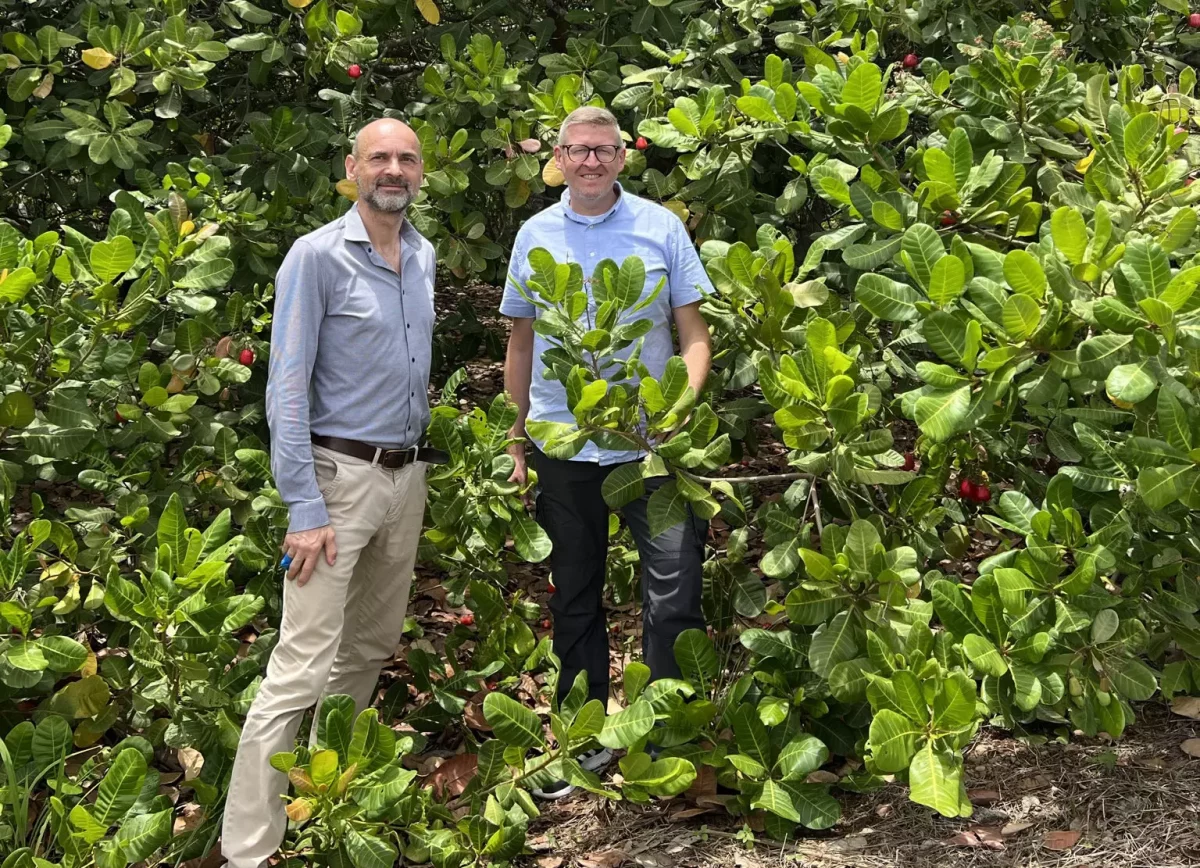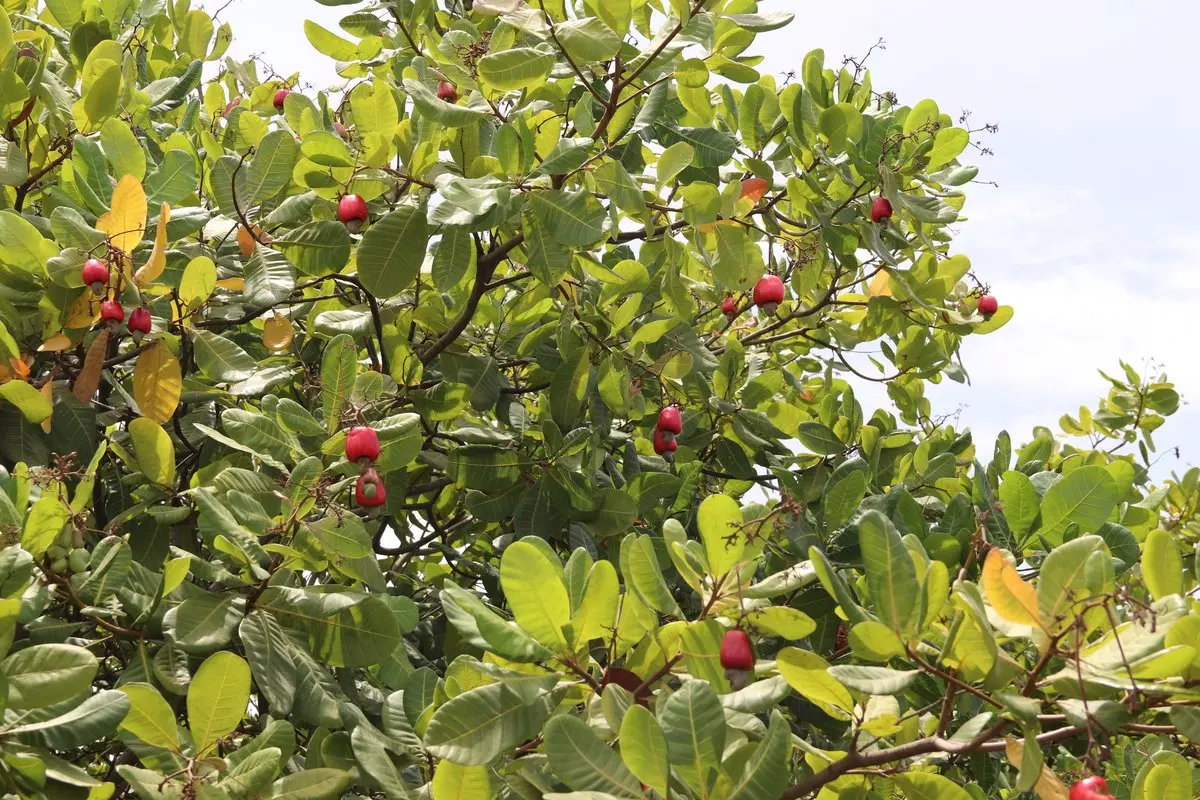Fair partnerships and respect for people and nature are at the heart of our sustainability strategy. As part of our “Farm to Consumer” philosophy, we have always relied on cooperation with reliable local partner companies. A recent trip to the origin of our cashew nuts shows that our efforts are bearing fruit: Our Managing Director Ralph Beranek and our Purchasing Manager Andreas Heigele saw the progress of the project for themselves and made new contacts.

“For almost a decade, we have been trying to establish a direct supply relationship for cashews in Africa. Always with the aim of preventing unnecessary transportation from Africa to Asia and then from Asia back to Europe, as well as strengthening regional value creation in line with our farm-to-consumer philosophy,” says Ralph Beranek. “For us, this is what makes Seeberger quality so special: We keep an eye on every nut on its way from its origin to us in Ulm. By purchasing directly, we can track the supply chain all the way to the farmer and farmer cooperative. This gives us the opportunity to demand social standards and get a picture directly from the suppliers.”
Côte d’Ivoire is one of the countries of origin of cashews. For many years, the world’s largest harvest of raw nuts has been harvested there. Until recently, however, the country lacked the infrastructure for the complex processing of raw materials. The nuts are therefore usually shipped to Asian countries, where they are processed and exported. Most of the value added was therefore generated in Asia, not in the African growing countries themselves.

We have now succeeded in finding several production partners in Côte d’Ivoire who can reliably implement the demanding processing procedure for cashews. In 2023, we will already be sourcing more than a third of our total cashew requirements (both pure and in our blends) directly from Côte d’Ivoire.
Responsible sourcing of raw materials through direct supplier relationships
Travel to the countries of origin has been a central part of Seeberger’s sustainable supply chain management for decades:
“In spring, Ralph Beranek and I therefore went to Côte d’Ivoire to take a look around the origin of cashews. The aim of our trip was to see our partner companies with our own eyes and hold personal discussions with those responsible. We also worked successfully on building new business relationships for future collaboration.”
We source cashews from Côte d’Ivoire from certified production companies that offer their employees secure jobs and fair wages all year round. The partner companies also provide a shuttle to the workplace, free meals, childcare and, among other things, union representation.
In addition to fair working conditions, we attach particular importance to sustainable aspects within processing. The production companies therefore pay attention to the holistic processing of the cashews: The shells are pressed into oil and the pressed residues are processed into fuel. Supposed waste is used as organic fertilizer, animal feed or to generate electricity via biogas . In this way, we contribute to the economic development of the region, social progress and environmental sustainability.
Seeberger has long been committed to taking responsibility along its own value chain. Based on the requirements of the German Supply Chain Duty of Care Act (LkSG), we have optimized the existing supplier monitoring system. The aim is to achieve even greater transparency and more binding cooperation with suppliers in the countries of origin of the natural products and to expand long-term partnerships.
How the topic of supply chain responsibility fits into the comprehensive sustainability strategy can be seen in the Group’s sustainability report.
